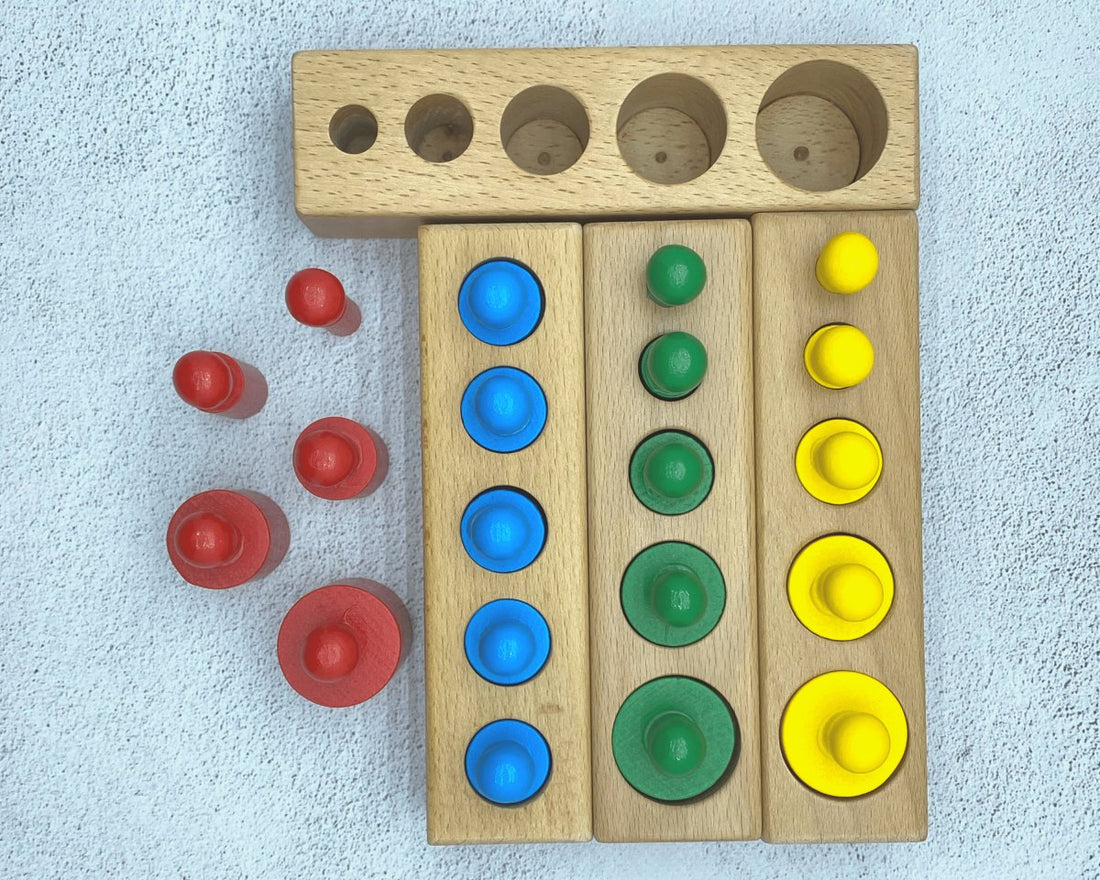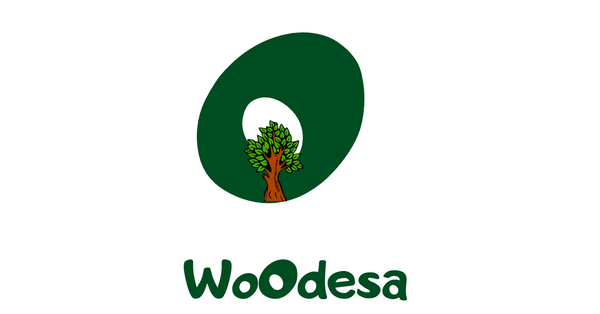
Why Montessori Toys Are Key to Your Child’s Development: A Parent’s Guide
Share
Montessori toys play a crucial role in supporting your child's cognitive, physical, and emotional development. Rooted in the principles of Montessori education, these toys are designed to foster independence, creativity, and problem-solving skills from an early age. Let’s explore why Montessori toys are essential for your child’s growth and how to choose the right toys for different stages of development.
1. Montessori Teaching Toys: Learning Through Play
Montessori teaching toys are intentionally simple and open-ended, allowing children to use their imagination and develop fine motor skills. Unlike traditional toys, which often entertain without engaging the mind, Montessori toys encourage children to think critically and solve problems independently. Popular Montessori toys include stacking blocks, puzzles, and counting beads that help children grasp math and language concepts through hands-on play.
2. Montessori Toys for Every Age Group
Montessori toys are designed to cater to the developmental needs of different age groups:
- Montessori infant toys: These toys are perfect for newborns and focus on sensory exploration. Rattles, mirrors, and soft fabric balls are ideal for stimulating a baby’s developing senses.
- Montessori toys for 1 year old: At this age, children are curious about how objects work. Object permanence toys, such as a wooden box with a ball that disappears and reappears, help infants understand that objects continue to exist even when they’re out of sight.
- Montessori toys for 2 year olds: This stage is all about developing coordination and independence. Montessori busy boards provide various activities like buttons, zippers, and latches that help develop fine motor skills.
- Montessori toys for 3 year olds: For preschool-aged children, wooden Montessori toys that involve sorting, stacking, and matching colors help reinforce logic and problem-solving skills. A Montessori play gym is also a great addition to encourage physical development through movement.
- Montessori toys for 4 year olds: By this age, children begin to engage in more complex activities. Toys like Montessori wooden puzzles and building sets stimulate their growing imagination and logical thinking.
3. Encouraging Independence and Concentration
Montessori toys are specifically designed to help children focus and engage deeply with the task at hand. By offering toys that are age-appropriate and encourage concentration, children develop the ability to work independently. For example, wooden Montessori toys and Montessori busy boards teach children how to complete tasks without constant adult intervention, building confidence and problem-solving abilities.
4. Promoting Object Permanence
One of the most essential milestones in early childhood development is the understanding of object permanence. Montessori toys like the object permanence box help children realize that even when objects disappear from view, they still exist. This key concept fosters memory retention and helps infants feel more secure in their environment.
5. Natural, Eco-Friendly Materials
Another advantage of Montessori toys is their focus on using natural, eco-friendly materials like wood. Wooden Montessori toys are durable, sustainable, and provide a tactile experience that plastic toys often lack. They are safe, non-toxic, and free from harmful chemicals, making them a perfect choice for environmentally conscious parents.
Conclusion
Montessori toys are more than just fun—they are critical tools for fostering your child’s development. From Montessori toys for newborns to Montessori toys for 4 year olds, these carefully crafted items promote independence, problem-solving, and creativity. Choosing the right Montessori teaching toys will help your child grow into a confident, curious learner who thrives in their environment.
1. Montessori Teaching Toys: Learning Through Play
Montessori teaching toys are intentionally simple and open-ended, allowing children to use their imagination and develop fine motor skills. Unlike traditional toys, which often entertain without engaging the mind, Montessori toys encourage children to think critically and solve problems independently. Popular Montessori toys include stacking blocks, puzzles, and counting beads that help children grasp math and language concepts through hands-on play.
2. Montessori Toys for Every Age Group
Montessori toys are designed to cater to the developmental needs of different age groups:
- Montessori infant toys: These toys are perfect for newborns and focus on sensory exploration. Rattles, mirrors, and soft fabric balls are ideal for stimulating a baby’s developing senses.
- Montessori toys for 1 year old: At this age, children are curious about how objects work. Object permanence toys, such as a wooden box with a ball that disappears and reappears, help infants understand that objects continue to exist even when they’re out of sight.
- Montessori toys for 2 year olds: This stage is all about developing coordination and independence. Montessori busy boards provide various activities like buttons, zippers, and latches that help develop fine motor skills.
- Montessori toys for 3 year olds: For preschool-aged children, wooden Montessori toys that involve sorting, stacking, and matching colors help reinforce logic and problem-solving skills. A Montessori play gym is also a great addition to encourage physical development through movement.
- Montessori toys for 4 year olds: By this age, children begin to engage in more complex activities. Toys like Montessori wooden puzzles and building sets stimulate their growing imagination and logical thinking.
3. Encouraging Independence and Concentration
Montessori toys are specifically designed to help children focus and engage deeply with the task at hand. By offering toys that are age-appropriate and encourage concentration, children develop the ability to work independently. For example, wooden Montessori toys and Montessori busy boards teach children how to complete tasks without constant adult intervention, building confidence and problem-solving abilities.
4. Promoting Object Permanence
One of the most essential milestones in early childhood development is the understanding of object permanence. Montessori toys like the object permanence box help children realize that even when objects disappear from view, they still exist. This key concept fosters memory retention and helps infants feel more secure in their environment.
5. Natural, Eco-Friendly Materials
Another advantage of Montessori toys is their focus on using natural, eco-friendly materials like wood. Wooden Montessori toys are durable, sustainable, and provide a tactile experience that plastic toys often lack. They are safe, non-toxic, and free from harmful chemicals, making them a perfect choice for environmentally conscious parents.
Conclusion
Montessori toys are more than just fun—they are critical tools for fostering your child’s development. From Montessori toys for newborns to Montessori toys for 4 year olds, these carefully crafted items promote independence, problem-solving, and creativity. Choosing the right Montessori teaching toys will help your child grow into a confident, curious learner who thrives in their environment.
